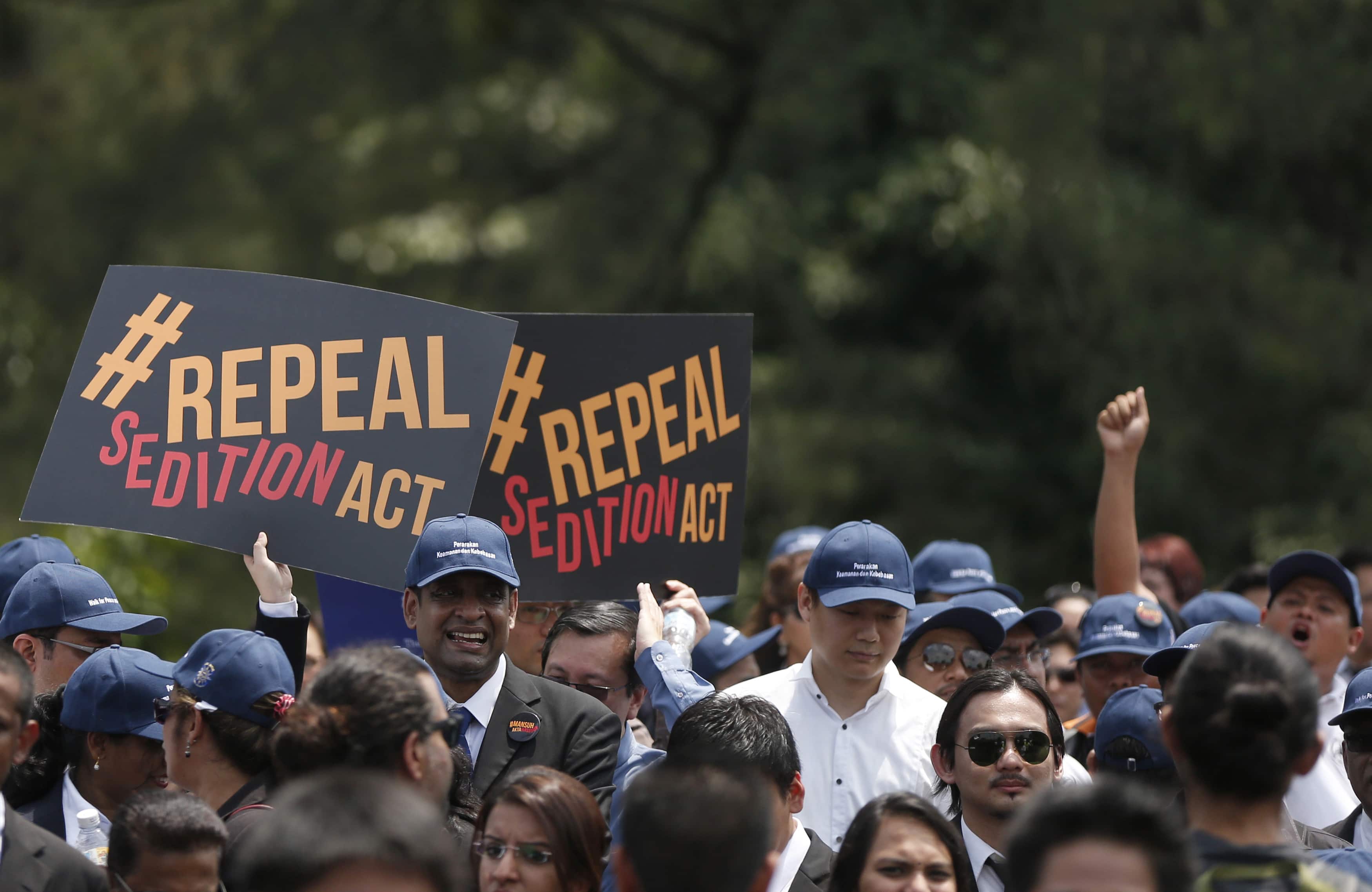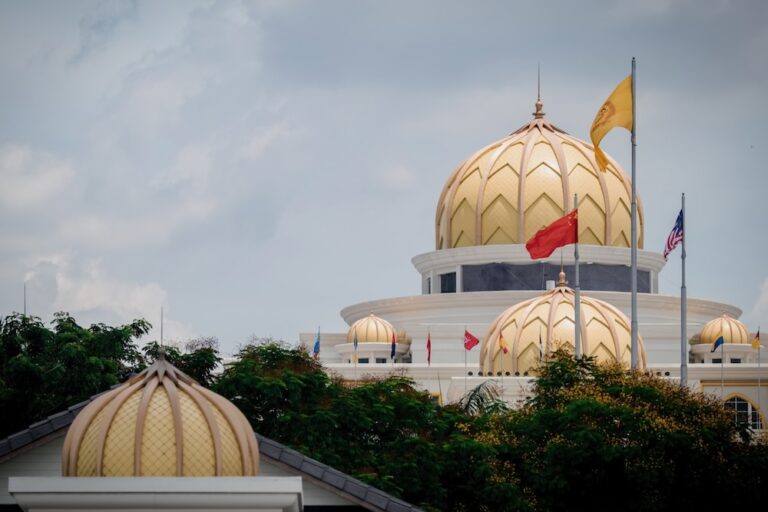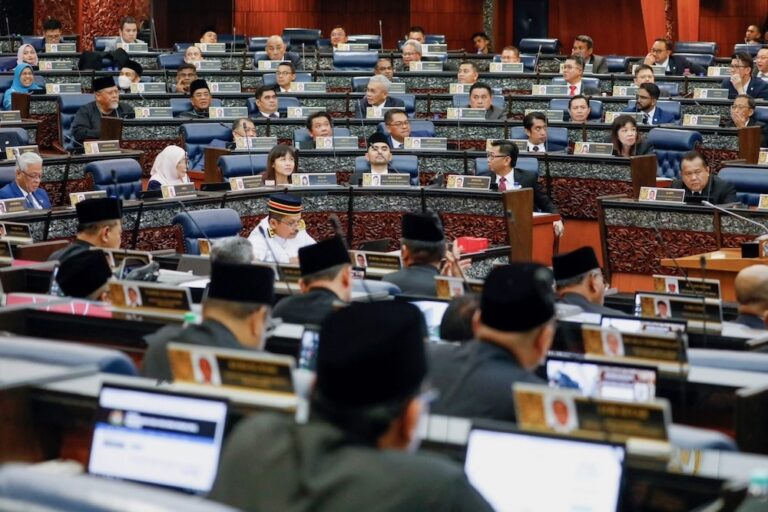Concerns include the use of Malaysia's Sedition Act to suppress legitimate criticism of government and courts.
A joint letter of concern on the declining standards of freedom of expression in Malaysia has been addressed to Prime Minister Najib Razak. The appeal was initiated by CIJ Malaysia and is signed by IFEX members and other concerned organisations.
Addressed to:
Dato’ Seri Najib Razak
Prime Minister of Malaysia
CC:
Tan Sri Khalid Abu Bakar
Inspector General of Police
Dato’ Seri Abdul Zahid Hamidi
Home Minister of Malaysia
We, the undersigned organisations, would like to express our concern on the declining standards of freedom of expression in Malaysia and the recent amendments introduced to the Sedition Act.
In 2015 alone, CIJ Malaysia has documented 150 arrests, investigations and charges of politicians, activists, students, and most recently members of the media, for offences related to freedom of speech and freedom of assembly.
Many of these arrests have been made under the Sedition Act, which Prime Minister Datuk Seri Najib Razak pledged to abolish in 2012. The Sedition Act is a pre-independence legislation that has wide-ranging provisions, which make it impossible to know for certain what speech would fall foul of this law. This means that even constructive and legitimate criticism of government policies or court decisions have been viewed as offences.
Amendments to the Sedition Act, passed on 10 April 2015, make the Act even more draconian. What is a “seditious tendency” remains ill defined. The amendment removed two categories from the definition of what is a sedition tendency – exciting disaffection against the government and against the administration of justice. However, other sections remain, including bringing into hatred or contempt or exciting disaffection against any ruler. The amendments have also added the offence of stirring up ill will, hostility or hatred on the grounds of religion.
Terms such as “exciting disaffection” and “stirring up ill will” are too broad to constitute legitimate restrictions to freedom of expression. For a restriction on freedom of expression to be permissible, it must be directly connected to a legitimate purpose such as national security or public order. The broad terms in the Sedition Act would certainly capture speech that fall outside those boundaries.
The Act now provides for a mandatory jail term of between three and seven years for those convicted of sedition. Sedition leading to bodily injury or damage to property will be punished by a mandatory jail term of between five and twenty years. This mandatory jail term and removal of judicial discretion on sentencing is a threat to the separation of powers and the ability of the court to act as a check and balance against the actions of the Executive.
The amendments also threaten freedom of expression online. They allow the court to order seditious material removed from online sources and to make an order barring a person who has published seditious material from using electronic devices.
The assurances of the government that the Sedition Act will not be misused ring hollow in the wake of dozens of arrests and investigations under the Act in 2015 alone. The Sedition Act also threatens media freedom, as most recently demonstrated by the arrests and overnight detention of four The Malaysian Insider editors and The Edge publisher Ho Kay Tat in relation to a disputed article on the Conference of Rulers.
The actions of the police and government authorities in the many arrests and investigations for offences related to speech are an embarrassment to the citizens of Malaysia and directly contradict our prime minister’s claims that Malaysia is a democratic and moderate country. With the closing down of spaces for free expression, the public’s ability to hold the government to account for its actions will be affected.
It has frequently been cited by government authorities that freedom of expression is not absolute and has its limits. This is in line with the Malaysian Federal Constitution and international standards of human rights law. However, the limits imposed on freedom of expression must be legitimate. They must be clearly defined and provided by law, and must be the least restrictive form of limit that is available. Instead, what we have seen in Malaysia is authorities arbitrarily imposing their own limits on freedom of expression, and taking excessive and harsh measures to curb free speech.
The constant reminder from authorities regarding the limits of the freedom of expression also sounds hollow given unchecked threats of violence against journalists and those deemed critical of the government. The picture that has emerged is therefore one of an insecure government, intent on maintaining the support of their voter base, and selectively using the law to weaken its perceived opponents.
We call on the prime minister to take immediate and concrete measures to cease the crackdown on freedom of expression. It serves no positive purpose, not even to shore up support for the government, if that is the intent, as the people are increasingly disapproving of the heavy-handed tactics of the authorities. Specifically, we call on the prime minister to:
• Declare his support for freedom of expression and to fulfill his promise to abolish the Sedition Act,
• Conduct a thorough impartial review of all laws that affect freedom of expression and to repeal those that place unreasonable and disproportionate restrictions on this important human right
• Express his support for media freedom and demonstrate that his government is open to criticism
• Encourage discussion and dialogue as a way to promote understanding and social cohesion, rather than silencing dissent.
Association for Progressive Communications (APC)
Persatuan Kesedaran Komuniti Selangor (Empower)
Projek Dialog
Suara Rakyat Malaysia (Suaram)



